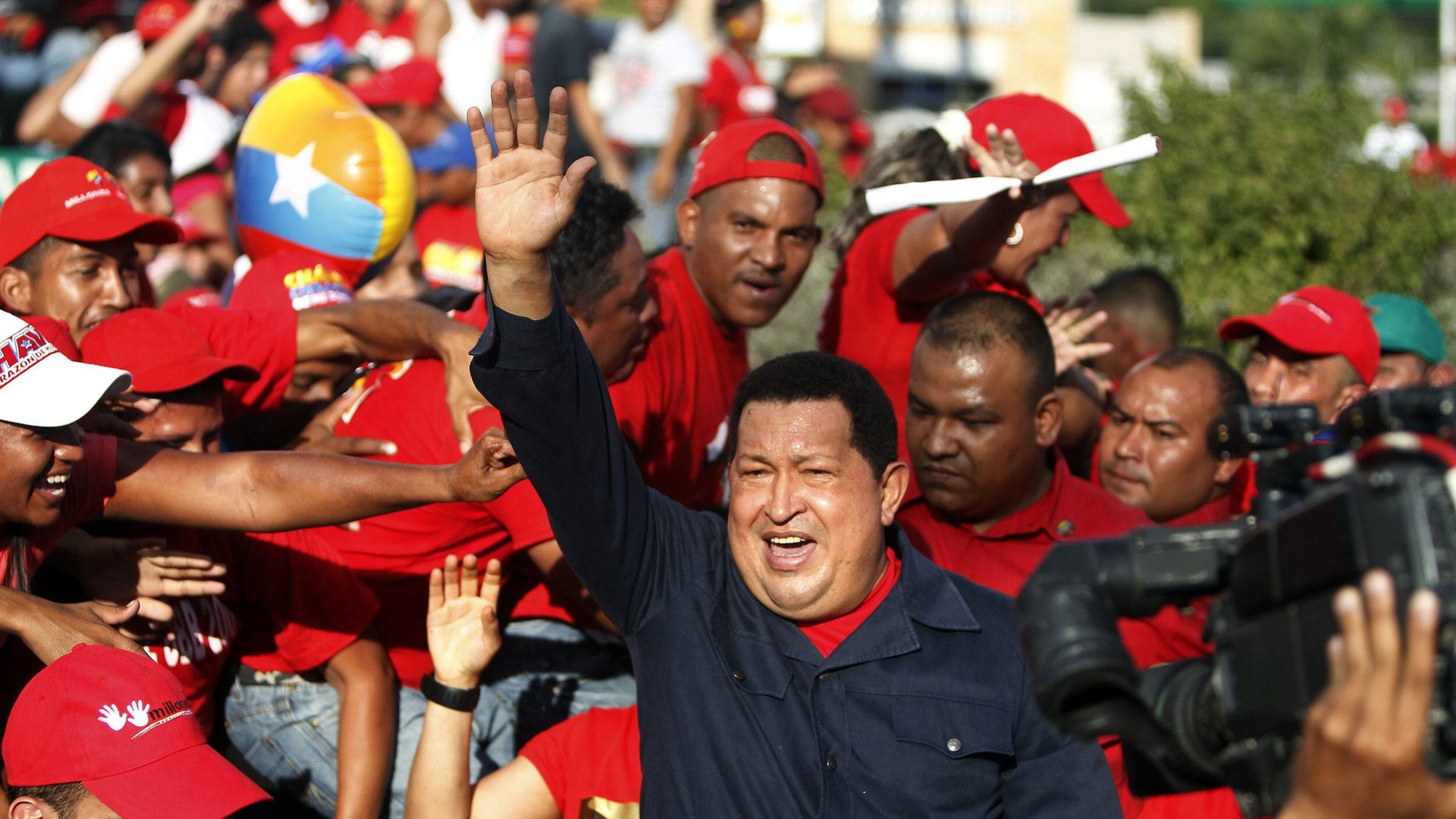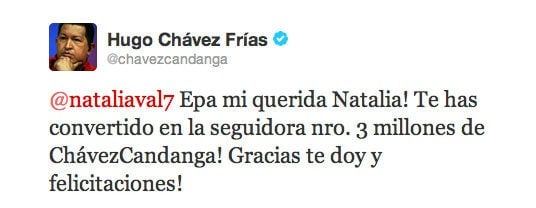In Venezuela, it’s easy to vote for Chávez after he gives you a house
Natalia Valdivieso became the luckiest young woman in Venezuela last May. After becoming President Hugo Chávez’s 3 millionth follower on Twitter, the 17-year old received the keys to her own house on Margarita Island:


Natalia Valdivieso became the luckiest young woman in Venezuela last May. After becoming President Hugo Chávez’s 3 millionth follower on Twitter, the 17-year old received the keys to her own house on Margarita Island:

[Translation: Hey my dear Natalia, you’ve become the 3 millionth follower of @chavezcandanga! Thank you and congratulations]
The gift generated buzz throughout Venezuela, not just as an obvious publicity stunt but also for what it says about Chavez’s politics. The president uses revenue from state-oil company PDVSA and transfers from Russia and China to fund social programs such as the Mision Vivienda housing program. Another 200 families on Margarita Island are receiving public housing, but Chavez was able to generate some publicity by using Twitter to bestow the house, which was paid for with public monies.
Housing and food programs have been crucial in Chavez’s efforts to boost his chances of reelection as the Oct. 7 presidential election approaches. But a poll released this week shows his opponent, Henrique Capriles, closing in, and many voters still undecided.
Capriles has largely framed himself as more market-friendly than Chávez but also has insisted he will preserve many of the incumbent’s social programs, including the housing.
“There is a clear and positive correlation between Chavez’s social programs and his level of popular support,” says Luis Vicente Leon, the president of local polling agency Datanalisis (which currently gives Chavez a 10-point lead).
The president understands this and touted the expansion of another 2,000 homes in neighborhoods across the country. Despite his controversial tenure—he has been president for almost 14 years—voters will likely reward him at the polls.
In fact, after Natalia received news of her home from the government, she quickly became one of Chavez’s most fervent supporters (she Tweeted a furious 1,940 times in August alone to declare her support for all things Chavez).
Still, Chávez must convince the undecided. Datanalsis’s polls show that as much as 15% of the electorate remains undecided. Worries about Chávez’s health (he has had cancer but says little about what type or his prognosis except that he has been cured) are probably scaring voters, but there are also signs that the president’s social programs aren’t quite as helpful as the government pretends they are. Critical blog Caracas Chronicles reported on Sept. 4 that in its rush to build homes before the elections, the Mision Vivienda program has been plagued with problems. Houses are falling apart, workplace accidents have occurred, and worker strikes erupted over the summer due to long-overdue salary payments. In other sectors similar problems have cropped up: the government’s lack of upkeep and investment in infrastructure contributed to the collapse of a bridge on a major highway in August. Blackouts are happening on a regular basis. More recently, an explosion at the country’s largest oil refinery killed dozens of workers and sparked criticism that the government has spent too much money on social programs and not enough to bolster PDVSA’s own capabilities. Chávez’s most fervent supporters will probably overlook these incidents, preferring to focus on government handouts that hit closer to home.
“Recipients of government support don’t evaluate” the quality of what they’re getting – they’re just content to get any support at all, Vicente notes.
Natalia continues to lavish Chávez with her support, recently tweeting to tell Chávez to “Count on us, we will give you an overwhelming triumph” and thanking him for “so many lovely things that you have given us.” But even she cannot escape the on-the-ground reality for so many Venezuelans; on Sept. 14 she posted a picture of a blackout that recently hit her hometown. Chávez will soon enough find out whether his gamble on social spending at the expense of capital investment will pay off with another election victory.